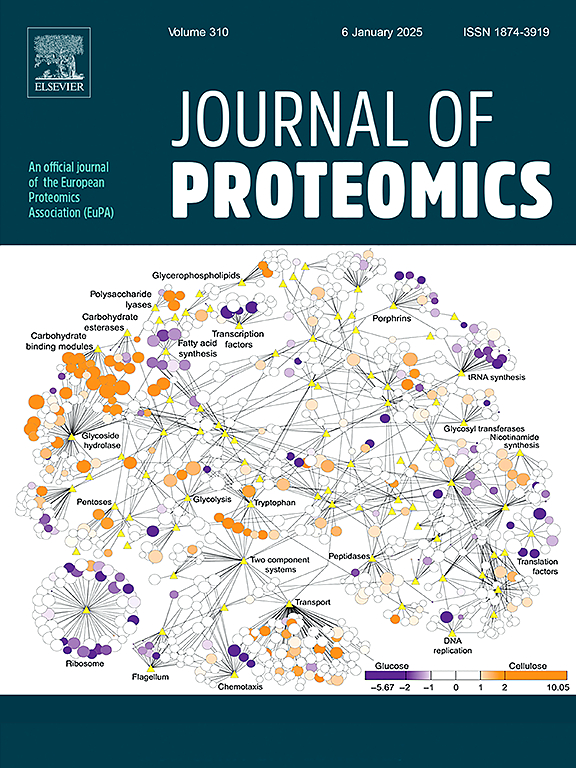P.1 and P.2 SARS-CoV-2 Brazilian variants activate the unfolded protein response with a time and pathway specificity
IF 2.8
2区 生物学
Q2 BIOCHEMICAL RESEARCH METHODS
引用次数: 0
Abstract
COVID-19 is a human respiratory syndrome caused by the infection of the SARS-CoV-2 virus that has a high rate of infection and mortality. Viruses modulate the host machinery by altering cellular mechanisms that favor their replication. One of the mechanisms that viruses exploit is the protein folding and processing of post-translational modifications that occur in the endoplasmic reticulum (ER). When ER function is impaired, there is an accumulation of misfolded proteins leading to endoplasmic reticulum stress (ER stress). To maintain homeostasis, cells trigger an adaptive signaling mechanism called the Unfolded Protein Response (UPR) which helps cells deal with stress, but under severe conditions, can activate the apoptotic cell death mechanism. This study elucidated an activation of a diversity of molecular mechanisms by Brazilian variants of SARS-CoV-2 by a time-resolved and large-scale characterization of SARS-CoV-2-infected cells proteomics and immunoblotting. Furthermore, it was shown that pharmacological UPR modulation could reduce viral release by counteracting the different viral activations of its cellular response. Analysis of human clinical specimens and disease outcomes focusing on ER stress reinforces the importance of UPR modulation as a host regulatory mechanism during viral infection and could point to novel therapeutic targets.
Significance
Since the emergence of SARS-CoV-2 and the consequent COVID-19 pandemic, the rapid emergence of variants of this new coronavirus has been a cause for concern since many of them have significantly higher rates of transmissibility and virulence, being called Variants of Concern (VOC). In this work, we studied the VOCs Gamma (P.1) and Zeta (P.2), also known as Brazilian variants. Constant evidence has reported that there are particularities related to each variant of SARS-CoV-2, with different rates of transmissibility, replication and modulation of host biological processes being observed, in addition to the mutations present in the variants. For this reason, this work focused on infections caused by the Brazilian variants of SARS-CoV-2 in different cell lines, in which we were able to observe that the infections caused by the variants induced endoplasmic reticulum stress in the infected cells and activated the UPR pathways, presenting specific modulations of each variant in this pathway. Furthermore, transcriptome analysis of patients revealed a correlation between ER-related genes and COVID-19 progression. Finally, we observed that the use of UPR modulators in host cells decreased viral release of all variants without affecting cell viability. The data presented in this work complement the observations of other studies that aim to understand the pathogenicity of SARS-CoV-2 VOCs and possible new therapeutic strategies, mainly targeting biological processes related to the endoplasmic reticulum.

P.1和P.2 SARS-CoV-2巴西变体激活具有时间和途径特异性的未折叠蛋白反应。
COVID-19是由SARS-CoV-2病毒感染引起的一种人类呼吸道综合征,具有很高的感染率和死亡率。病毒通过改变有利于自身复制的细胞机制来调节宿主机制。病毒利用的机制之一是蛋白质折叠和内质网(ER)翻译后修饰的处理。当内质网功能受损时,错误折叠蛋白的积累导致内质网应激(ER应激)。为了维持体内平衡,细胞触发一种称为未折叠蛋白反应(UPR)的适应性信号机制,帮助细胞应对压力,但在严重的条件下,可以激活凋亡细胞死亡机制。本研究通过对SARS-CoV-2感染细胞的蛋白质组学和免疫印迹技术进行时间分辨和大规模表征,阐明了巴西SARS-CoV-2变体激活的多种分子机制。此外,研究表明,药理学上的UPR调节可以通过抵消其细胞反应的不同病毒激活来减少病毒释放。对人类临床标本和疾病结果的分析着重于内质网应激,强调了UPR调节作为病毒感染期间宿主调节机制的重要性,并可能指出新的治疗靶点。意义:自SARS-CoV-2出现和随后的COVID-19大流行以来,这种新型冠状病毒的变种迅速出现,引起了人们的关注,因为其中许多变种的传播率和毒力明显更高,被称为关注变种(VOC)。在这项工作中,我们研究了VOCs γ (P.1)和Zeta (P.2),也被称为巴西变体。不断有证据表明,每种SARS-CoV-2变体都存在特殊性,除了变体中存在突变外,还观察到不同的传播率、复制率和宿主生物过程调节率。因此,本研究的重点是由巴西SARS-CoV-2变体在不同细胞系中引起的感染,我们能够观察到由变体引起的感染在受感染细胞中诱导内质网应激并激活UPR通路,在该通路中呈现出每种变体的特异性调节。此外,患者转录组分析显示er相关基因与COVID-19进展之间存在相关性。最后,我们观察到在宿主细胞中使用UPR调节剂可以减少所有变体的病毒释放,而不影响细胞活力。这项工作提供的数据补充了其他研究的观察结果,这些研究旨在了解SARS-CoV-2挥发性有机化合物的致病性和可能的新治疗策略,主要针对内质网相关的生物过程。
本文章由计算机程序翻译,如有差异,请以英文原文为准。
求助全文
约1分钟内获得全文
求助全文
来源期刊

Journal of proteomics
生物-生化研究方法
CiteScore
7.10
自引率
3.00%
发文量
227
审稿时长
73 days
期刊介绍:
Journal of Proteomics is aimed at protein scientists and analytical chemists in the field of proteomics, biomarker discovery, protein analytics, plant proteomics, microbial and animal proteomics, human studies, tissue imaging by mass spectrometry, non-conventional and non-model organism proteomics, and protein bioinformatics. The journal welcomes papers in new and upcoming areas such as metabolomics, genomics, systems biology, toxicogenomics, pharmacoproteomics.
Journal of Proteomics unifies both fundamental scientists and clinicians, and includes translational research. Suggestions for reviews, webinars and thematic issues are welcome.
 求助内容:
求助内容: 应助结果提醒方式:
应助结果提醒方式:


